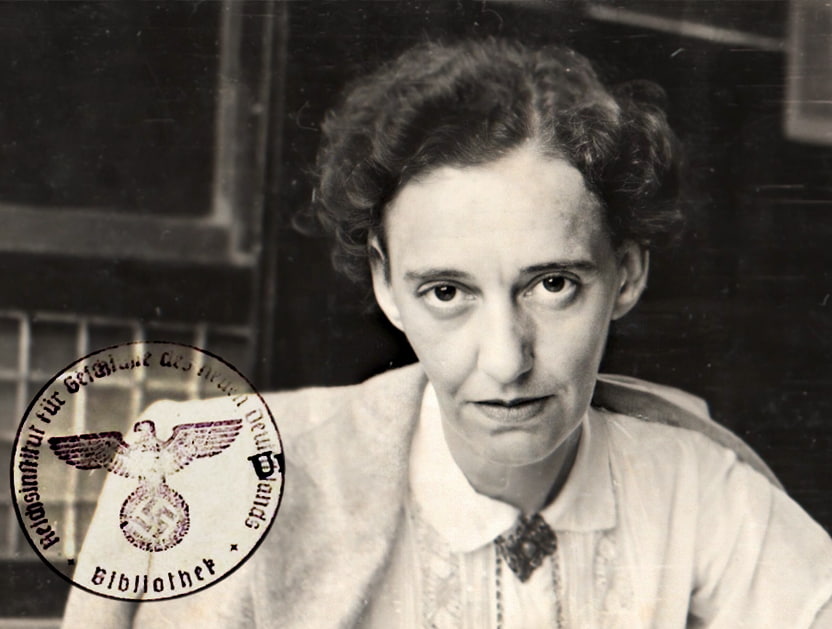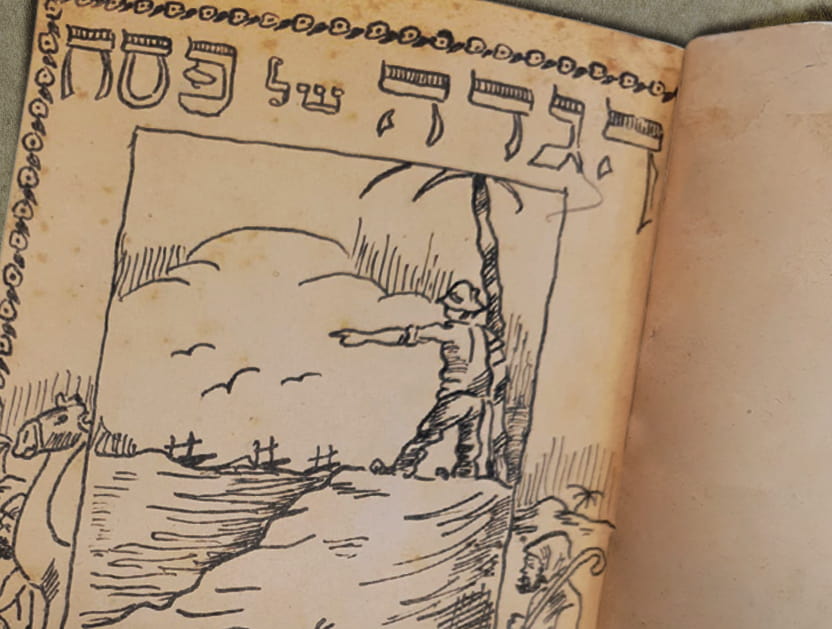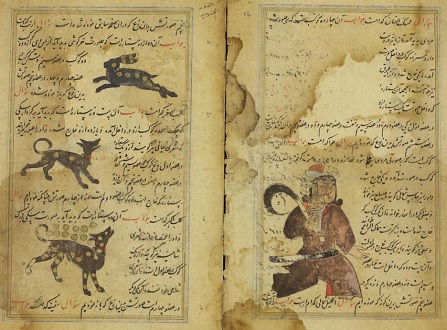Autobiographical interviews of Jews born in German speaking countries ("Yekkes") - 50/60 years after their immigration to Israel
להגדלת הטקסט להקטנת הטקסטOriginal name: Anton Jaul. Born 01/15/1915, Neunkirchen (Austria). He attended the “Volksschule” (primary school) in Neunkirchen and a “Humanistisches Gymnasium” (comparable to a Brit. Grammar school emphasizing the study of the classics) in Wiener Neustadt. Studies of jurisprudence in Vienna. Emigration to Palestine in 1938. For the first two years he worked in pardessim of a community of the Betar, afterwards roadworker in Haifa and service in a Jewish batallion in the British army (the “Buffs”). Later he became an employee in the Israeli governmental customs office. ; Naftali Jaul's life until his emigration and his relationship to Austria: He attended the “Volksschule” in Neunkirchen and a “Humanistisches Gymnasium” in Wiener Neustadt. After the matura he pursued studies of jurisprudence in Vienna until March 1938. He was a member of a right wing Zionist youth group (Beitar). He describes the situation and torments of the Jewish citizens in Vienna after 1938. He wanted to leave Austria and to go to Palestine. He remembers that he was already insulted several times as a child for being a Jew (“Saujud”). He had five siblings, his eldest brother, who ran the family business (a department store) in Neunkirchen after the father's early death in 1932, supported the whole family. - N.J. visited his father's grave in Neunkirchen after the War and during later visits. Apart from that, he is not interested and does not feel any need to go to Austria. Naftali Jaul's emigration and his first years in Palestine: He describes the difficulties he had when he wanted to depart from Vienna. Finally he could go by aeroplane from Vienna to Athens and stayed in Greece for one month. Then he went to Romania: difficult journey with ship and train to Galatz/Galati, where he joined a ship with 1.500 Jewish emigrants coming from Vienna and Bratislava. The whole transport was organized by Beitar. The passage took a whole month. When they arrived in Palestine near Netanya, they were brought ashore in smaller vessels at night and immediately transported further inland, where the new immigrants were received by foster families. N.J. left his family soon and joined a community of the Betar in Rishon Letzion; he worked there in the pardessim. After two years he left and joined a team of road workers in Haifa. - A brother and a sister of N.J. also came to Palestine soon. Another brother emigrated to Switzerland and moved on to Santo Domingo in 1940; he also came to Palestine in 1946. ; Naftali Jaul's military service: Road work was physically too hard for him. Therefore he joined the British military group the “Buffs” in Haifa and finished training as a soldier. It was a Jewish group, but commanded by British officers. He served in the Second Bataillon, first in Egypt and Libya, then against German troops in Italy. After the end of World War II, he travelled all over Central Europe with his military unit. Their task was to guard the German prison camps and the harbors. He visited Bergen-Belsen concentration camp where he was looking for a female friend of his brother. In the camp, he met his future wife, they married in Italy and therefore she could legally immigrate to Palestine. Naftali Jaul's work and family: His mother and one of his sisters were not able to depart from Vienna. They went missing since 1942. N.J. tells the life stories of his wife's family members. She lost her parents, brother and sister in the holocaust. In 1946, N.J. returned to Palestine with his military unit. His wife was later brought to Palestine by the British army. He describes his new life in Palestine and his living conditions. Their first daughter was born in 1947, their son in 1950. After his return, Jaul Naftali looked for an employment. Until 1980, he worked as employee in a governmental customs office. He analyzes the beginning of the warlike unrests from 1946 to 1948.
| כותר |
Autobiographical interviews of Jews born in German speaking countries ("Yekkes") - 50/60 years after their immigration to Israel. |
|---|---|
| כותרים נוספים |
יהודים ילידי ארצות דוברות גרמנית - 50 שנה לאחר גירושם ועלייתם לארץ |
| יוצרים נוספים |
Jaul, Anton Fisher, Eva OHD (interviewer) Gruendler, Michaela OHD (interviewer) יאול, נפתלי OHD (מרואיין) Jaul, Anton OHD (interviewee) יאול, אנטון OHD (מרואיין) המדור לתיעוד בעל פה של מכון המחקר ליהדות זמננו ע"ש אברהם הרמן באוניברסיטה העברית בירושלים (בעלים נוכחיים) |
| שנה |
1998 |
| הערות |
Includes short biography, questionnaire and topics of the interview. Audio and transcript match, end abruptly המדור לתיעוד בעל פה של מכון המחקר ליהדות זמננו ע"ש אברהם הרמן באוניברסיטה העברית בירושלים (234)151 |
| מקום נוסף |
1. December 1998. |
| היקף החומר |
20 p. Playing time: 01:14:57 |
| שפה |
גרמנית |
| קרדיטים |
המדור לתיעוד בעל פה של מכון המחקר ליהדות זמננו ע"ש אברהם הרמן באוניברסיטה העברית בירושלים |
| מספר מערכת |
990044255450205171 |
בכל שימוש יש לציין את מקור הפריט בנוסח הבא:
המדור לתיעוד בעל פה של מכון המחקר ליהדות זמננו ע"ש אברהם הרמן באוניברסיטה העברית בירושלים
תנאי השימוש:
למחקר, לימוד והוראה
מותר להעתיק את הפריט ולהשתמש בו למטרות של לימוד עצמי, הוראה ומחקר בלבד.
מותר להעתיק את הפריט ולהשתמש בו גם למטרות הוראה ומחקר מסחריות.
חובה להעניק קרדיט ליוצר/ים בכל שימוש בפריט.
אסור לפגוע בכבודו או בשמו של היוצר באמצעות סילוף או שינוי של היצירה.
אין צורך לפנות לספרייה הלאומית לקבלת רשות שימוש למטרות לימוד עצמי הוראה ומחקר.
שימוש שאינו ללימוד עצמי, הוראה ומחקר, מותנה בקבלת הרשאה מבעל זכויות היוצרים בפריט ו/או מבעל האוסף. לא נדרש אישור נוסף מהספרייה הלאומית.
ניתן לפנות לספרייה הלאומית לקבלת פרטי הקשר של בעל זכויות היוצרים/בעל האוסף: טופס בקשה לבירור זכויות יוצרים
מידע נוסף:
הפריט כפוף לזכויות יוצרים ו/או לתנאי הסכם.
תנאי השימוש נקבעו בהסכם עליו חתמה הספרייה הלאומית.
אם לדעתך נפלה טעות בנתונים המוצגים לעיל או שקיים חשש להפרת זכות יוצרים בפריט, אנא פנה/י אלינו באמצעות טופס בקשה לבירור זכויות יוצרים
תצוגת MARC
תגיות
- Betar (Organization)
- Great Britain. Army
- Netanya (Israel)
- National socialism -- Austria
- Antisemitism -- Austria
- Jews, German -- Israel
- German language
- Education -- Austria
- Education -- Israel
- Zionism -- Austria
- Foster parents
- Israel -- Aliyah
- Haifa (Israel)
- Neunkirchen (Austria)
- Athens (Greece)
- Romania
- Rishon LeTsiyon (Israel)
- Switzerland
פריטים קשורים
יודעים עוד על הפריט? זיהיתם טעות?

 כניסה עם גוגל
כניסה עם גוגל
 כניסה עם פייסבוק
כניסה עם פייסבוק




